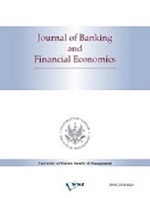Effect of introduction of German and Hungarian bank levies on banks’ risk-taking behavior
Effect of introduction of German and Hungarian bank levies on banks’ risk-taking behavior
Author(s): Karolina PuławskaSubject(s): Business Economy / Management
Published by: Wydawnictwo Naukowe Wydziału Zarządzania Uniwersytetu Warszawskiego
Keywords: bank levy; credit quality; banks; regulations; taxation;
Summary/Abstract: Policymakers introduce bank levies (BLs) to reduce the probability of crises. In this study, we evaluate the effects of the Hungarian and German BLs implemented in 2010 and 2011, respectively, on the banks’ risk-taking behavior. Our analysis compares two completely different BL designs. The German BL is designed to increase as banks’ total liabilities increase, while the Hungarian BL is assessed on total assets. The results unambiguously demonstrate that a BL on assets increases banks’ credit risk. The results of analyzing the influence that introducing BLs has had on the German banking sector demonstrate that BL on liabilities decreases banks’ credit risk. An improved understanding of the impact of regulation on the risky activity of EU banks is very important for a wide range of financial market participants, including borrowers, shareholders regulators and supervisors, especially during turbulent times caused by the COVID-19 pandemic and the Russian war in Ukraine.
Journal: Journal of Banking and Financial Economics
- Issue Year: 19/2023
- Issue No: 1
- Page Range: 1-25
- Page Count: 25
- Language: English

